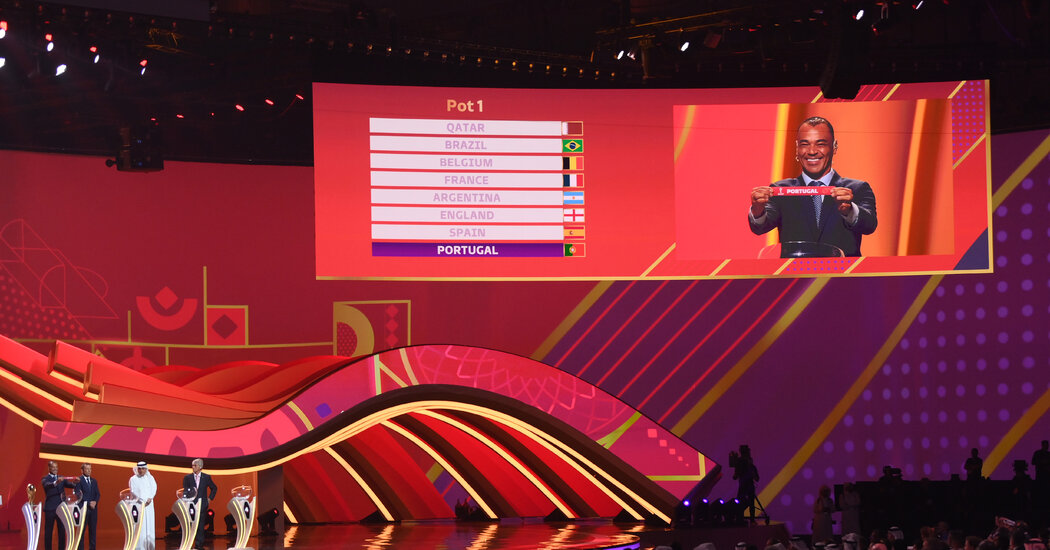
But the group stage draw is not really a draw just for the group stage: It is a road map for the entire tournament, too. If England is to win — as it believes it can, this time, with rather more logic than that of the stopped clock — the incline grows immediately steeper once the knockout stage starts. Senegal, the most complete team Africa has sent to a tournament for more than a decade, may lie in wait in the last 16. Then it could be France, the reigning champion, in the quarterfinals. Whatever lies beyond that may not be immediately relevant.
There will, of course, be some teams who are pleased with their fates: France, certainly, should have little trouble with Denmark and Tunisia and one of Peru, Australia and the United Arab Emirates. The two South American contenders, Brazil and Argentina, will be confident, too.
Even the United States should not be too displeased. “We have the youngest squad at the World Cup,” Berhalter said. “For us, that’s a benefit. The guys are fearless.” England might be comfortable favorites to win their group, but there is no reason to believe the United States — returning after an eight-year absence — cannot finish second.
And there will, of course, be teams who are left to rue their lot. Canada, for example, gracing this stage for the first time since 1986, has a group without a true heavyweight but somehow harder for it: Croatia and Belgium finished second and third four years ago, while Morocco sailed through the arduous process of African qualifying.
Ultimately, though, Van Gaal was right: There is no way of knowing, eight months in advance, who has been lucky and who has not, of which is the smooth draw and which the rough. After all the pomp and the circumstance, the video montages and the marketing spiel dressed up as mission statements, all you can say with any certainty is that it will, when it comes, be colorful.




